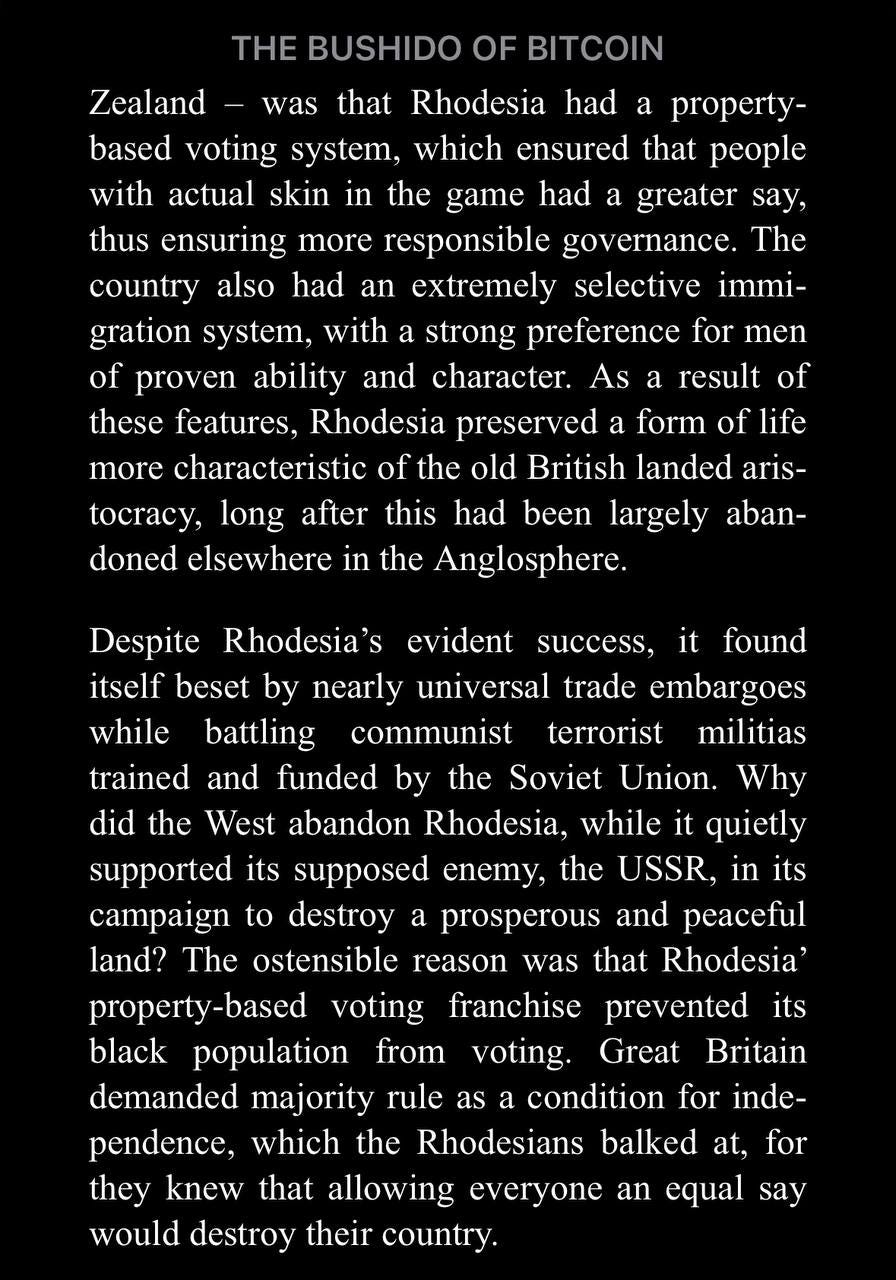This is the third in a series of four mini-essays on moving beyond freedom, libertarianism and the economically sound, but practically delusional Rothbardian anarcho-capitalism… and what I think comes next. I ended last week’s piece by asking what kind of state we should strive for. This week, I explain why Democracy (AND Meritocracy) is NOT it.
Intro
If you’re familiar with my work, you too are likely already skeptical of whatever form of ‘Democracy’ it is we have now in the West. The problem however, is not any given implementation of the democratic system – but Democracy itself.
Democracy, like Freedom, has become such a blanket term that it is hard to discern what it’s even supposed to mean:
It is a governance model, sure enough, describing a polity with a relatively open and deliberative decision-making process, that is much more ‘public’ than the ‘private’ rule of a monarch or oligarchy.
On the surface, a Democracy looks and feels very much like a Republic. Most people use the terms almost interchangeably. But Democracy carries with it a concealed and dangerous ideology: that political participation is a Right, an entitlement, which expands until it eventually includes everyone. It is with that ideology that I take issue. It is the crux of what differentiates Democracies from not only Republics, but from all other more private and hierarchical forms of rule.
And since ideology cannot be separated from government, if we are to change the course of events, build an ascendant civilization, and not fall into the same trap, Democracy itself must be rejected altogether.
Democracy Never Meant EVERYONE
To gain legitimacy, every modern Democracy has claimed inspiration from Classical Greece, more concretely Athens. This is, after all, where the term was born: demos + kratos, Rule by the People.
What few will acknowledge, however, is that for the Athenians the demos never meant EVERYONE in the city.
To begin with, slaves, foreigners and Athenian women had no citizenship status, and could not attend the Assembly, let alone exercise voting rights. Only Athenians belonging to the three higher classes could hold office – essentially the same formula followed by early America and Rhodesia (both Republics).
Eventually, participation expanded to include all Athenian males above 18. Still, they retained a strict and essential citizenship criterion: both parents had to be Athenians. Even with this broader definition of citizenship, the demos still consisted of only 10-20% of the Athenian population, and was ethnically cohesive (sounds a bit like the UAE, doesn’t it?).
It’s also worth mentioning that ALL CITIZENS WERE FIGHTING MEN - but that’s for another discussion.
The point is simple: how you define the demos, matters, particularly when you’re dealing with something as delicate as governance. The Greeks knew to make their definition of citizen VERY restrictive. They never mandated inclusivity with its ‘diversity is our strength’ nonsense…
Nevertheless, Democracy always carried an implicit sense of entitlement which led to factionalism, chaos and weakness. It is therefore not surprising that Athens fell to warrior-led monarchies or republics: first Sparta, then Macedon, then Rome.
From the Enlightenment… the Darkness
Our modern concept of Democracy is an offspring of the Enlightenment – and more precisely of the French Revolution, more so than of the Founding Fathers of the US. (The latter crafted a Republic of landowners, not the bloated and neutered Democracy it has become today.)
The Revolutionaries tore down Christian iconography and enshrined Reason in its place. Man had finally become Rational, they claimed, and thus could liberate himself from the fetters of irrational tradition.
Key to this reckless thinking was the idea that All Men Are Created Equal (a rare judgment error by the Founding Fathers…).
According to this doctrine, all differences are superficial: in the gooey soup of Equality there are no distinctions, each man is replaceable by the next, and thus every man is worth a vote. (The musical Les Misérables has the masses chant “Every Man will be a King”.) This nonsense is in large part responsible for the mess our civilization is in today. The mindless many are in charge of the excellent few.
In its modern reincarnation, the ideology of Democracy was made sacred, pushed by universalist philosophers, schools and the media, and followed by a global program of political implementation, led by an increasingly left-wing United States (and it’s puppet masters).
The great spread of “modern liberal Democracy” culminated with the fall of Rhodesia, on whose tragic fate you can read more here and here (h/t
). I also briefly discussed Rhodesia in The Bushido of Bitcoin:Merit or Excellence?
In its subversion of Aristocracy for Democracy, the Enlightenment necessarily had to reject Excellence. I’ve dealt with the virtue of Excellence and the consequences of its abandonment in The Bushido of Bitcoin.
What I touched on, but didn’t fully explore in the book, was the modern sleight-of-hand of also substituting Excellence with Merit.
I’ll be discussing this in greater detail in an upcoming essay on “Bitcoin Feudalism”, but for now I strongly suggest you read this excellent piece by
:As Johann argues:
“Unfortunately, making ‘merit’ synonymous with ‘maximally economically productive’ also makes merit synonymous with a range of less desirable factors: a lack of inconvenient moral values, a lack of desire for a distracting family life, and an absence of ties to a particular locality. Merit as economic productivity preferences a bias towards tolerance for inhuman working hours, a subservient and predictable personality type, and compliance over criticism or revolt.
Meritocratic institutions embrace those subjects who are transparent rather than complex; those whose achievements are easily summarized on a paper resume, and those who are willing to devote their lives to filling that paper in.”
Before you conclude I’ve gone mad for opposing meritocracy, let me clarify that I’m not opposed to the idea of ‘earning your lot’ or ‘merit’ in an of itself. The problem is that merit now refers exclusively to economic success.
Class-based systems such as Feudalism also pushed individuals within each class to earn their position; but the measure of merit was more relevant to the class, in other words, merit for a warrior was different to merit for an artisan, which was different to merit for a merchant or peasant. Today, merit has been reduced to pure materialism.
Where the modern conception of Meritocracy falls over is that it tries to reinvent the wheel: what most people understand by it is already covered by Aristocracy, Rule by the Best. This is precisely what it sought to replace: Merit for Excellence, Democracy for Aristocracy.
An example of this ‘Religion of Merit’ gone awry is the normalisation of living only for yourself. The isolated individual must achieve something in the span of a lifetime… and consume it all too!
The merit-maxxing individual is often untethered from the past and from the future. The liberal, open-ended meritocracy, he lives in (not just fiat money) ends up destroying generational wealth by impeding its ability to compound. Such a framework is antithetical to civilization. The result is something we’re quite familiar with thanks to the boomer generation.
In Closing
There is a place for Democracy as a governance model, I’m sure. In fact, feel free to form your city-states or decentralized cantons as you like… Just recognise that Democracy as it’s been sold since the 18th century is not just a governance model, but an ideology that justifies average (the enemy of excellence).
The ancients knew this and repeatedly warned us. In book 8 of Plato’s Republic, the philosopher explained how Democracy, rule of the mob, ultimately leads to tyranny, which the democratic ideologues supposedly oppose…
When you enshrine Equality instead of Distinction, you get Average instead of Excellence. When you bring base ideas and thoughts into the highest spheres of society, how can you expect it to lead to anything but a base form of government?
“Set up standards of achievement open to all, to the least, to the most inept—and you stop the impetus to effort in all men, great or small. You stop all incentive to improvement, to excellence, to perfection.” — Ayn Rand, Atlas Shrugged
That’s all for today, or I won’t get away with calling this a mini-essay series… Join me next week as we close this series with what I expect comes after we rise above Democracy.
Aleksandar Svetski
The Remnant Chronicles is a reader-supported publication. To receive new posts and support my work, consider becoming a free or paid subscriber.
I’ll be doing more of these short-form essays as I explore the core themes from The Bushido of Bitcoin and prepare to write the second book in the Bushido series: The Metaphysics of War & Beauty.
If you’re interested in this kind of content, subscribe and share this with anyone you think might also find it valuable.
And if you want to support my work, please pick up a copy of The Bushido of Bitcoin on Amazon, or directly from me for Bitcoin.













Great essay, but I think when you enshrine equality it’s not mediocrity that you get, but the lowest common denominator…degeneracy. Only way to make everyone equal is to pull everyone down to the same level.
Interesting, will have to ponder this. I do understand the problem with letting everyone vote. Less sure about meritocracy being an inherently bad thing...heres my half baked thoughts.
1) To vote you should have to have kids (adopted counts) own property, and pay more into the government than you recieve. Serving in the armed services offers a waiver.
2) The orgins of the aristocracy were meritocracy. Some tribes man was bigger and stronger than the rest and earned a leadership position by earning the respect/fear/trust of his peers. He passed these rights on to his sons who, inherited the fathers loyal soldiers but may or may not have possessed the attributes that made the father a leader. Maybe he has a rebellion and gets replaced by an upstart. Eventually, some guy ammasses enough resources and has a way to consistently and safely transfer them to his progeny that a stable aristocracy is created. If the aristocracy continues to provide some sort of value to those under them and fend off external threats, they will likely remain in power. The aristocracy was replaced because they retained the privledge, lost their virtue, and abandoned their responsibilities of providing a job, a sort of financial safety net, protection, and moral leadership. The aristocracy abandoning their responsibilities leads to class warfare. I do believe in the idea of a merit/inherited aristocracy. You become an aristocrat by either inheriting or createing wealth. Both can be considered aristocrat's if they see their privledged position not as one to exploit the peasants who are "equal" to them, but recognize that the well being if the peasants is to some extent their responsibility. The peasants are expected carry out their own responsibilities with virtue, otherwise the aristocrats have no moral responsibility for their well being. This means not shipping your workers jobs off to China. If you do that your not an aristocrat and should not be surprised to get a populist peasants rebellion.